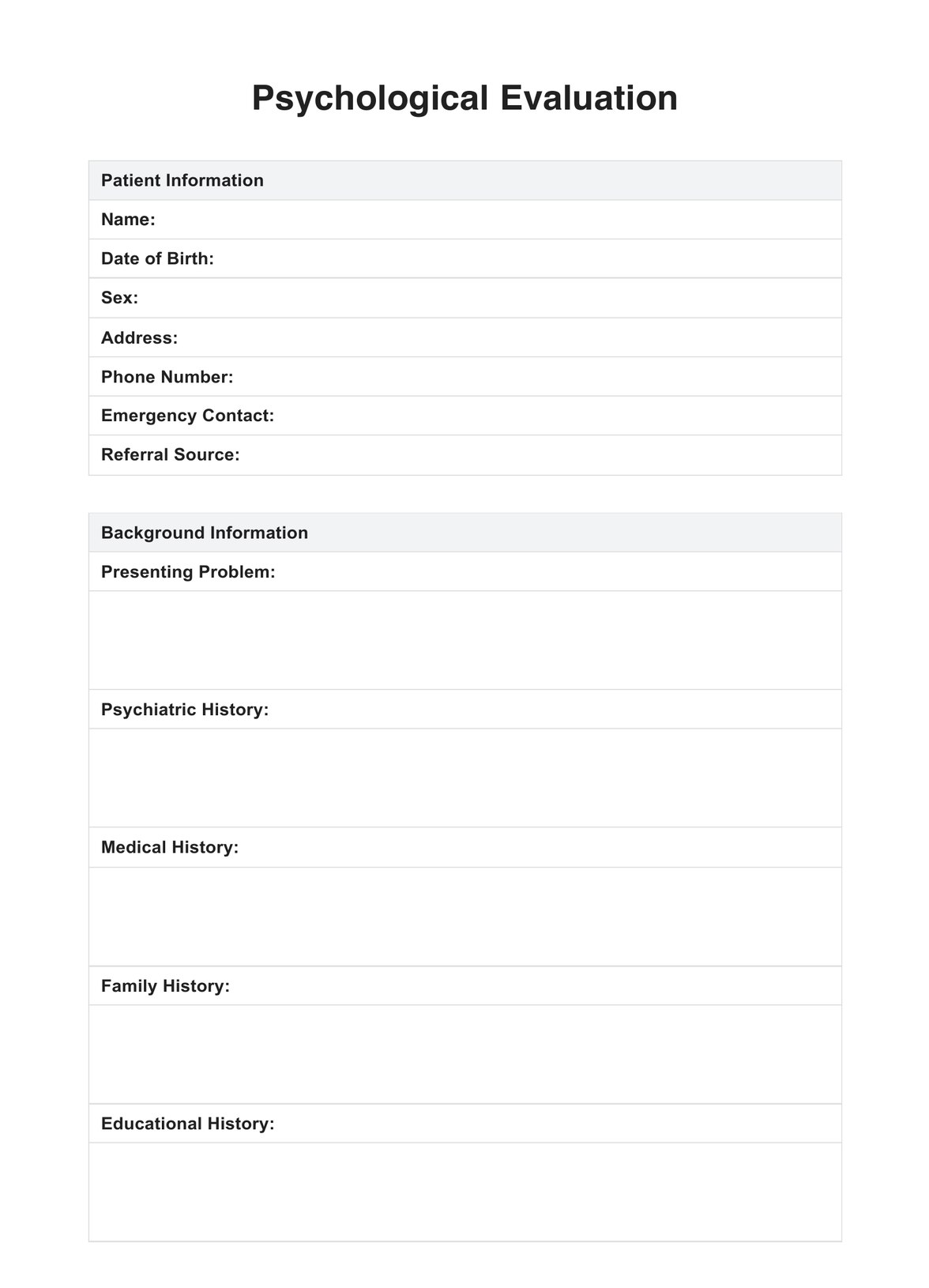Psychologists, therapists, and other mental health professionals typically use psychological evaluations.

Check our Psychological Evaluation resource — a comprehensive approach to understanding mental health, behavior patterns, cognitive abilities, and more.
Psychologists, therapists, and other mental health professionals typically use psychological evaluations.
They are used when there's a concern about a person's mental health, such as suspected learning difficulties, behavioral problems, or emotional issues.
These evaluations are used to understand a person's mental health better, diagnose accurately, and develop treatment plans.
EHR and practice management software
*No credit card required
Free
$0/usd
Unlimited clients
Telehealth
1GB of storage
Client portal text
Automated billing and online payments